Export Leads From Sales Navigator
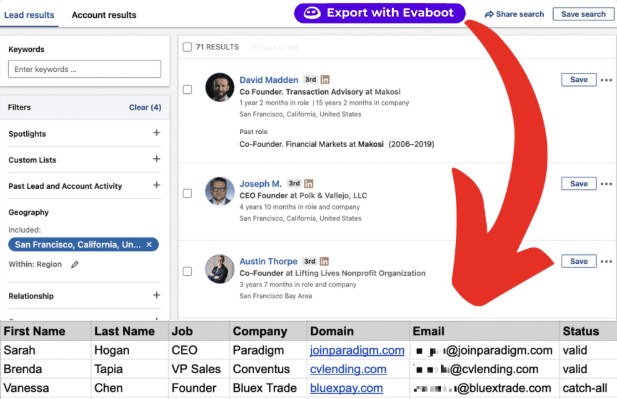
Create a clean B2B email list from LinkedIn Sales Navigator in just one click with the Evaboot Chrome Extension.
Export Leads From Sales Navigator

Create a clean B2B email list from LinkedIn Sales Navigator in just one click with the Evaboot Chrome Extension.
Contents
Did you know that 20% of emails never reach the inbox because of invalid or outdated addresses?
If you’re sending email campaigns without using email verification tools, you’re gambling with your sender reputation.
But with so many platforms out there, how do you choose the right one?
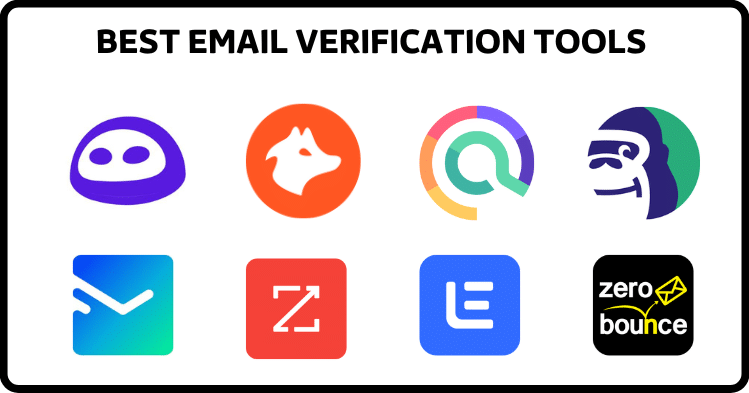
In this guide, we’re going to break down the top tools based on accuracy, speed, features, and pricing to help you clean your list and hit more inboxes.
We’ll see:
Let’s dive in.
Here are 8 of the best email verification tools you can give a try:
Evaboot is an all-in-one Email Verifier and LinkedIn Sales Navigator data scraper designed to help you build clean, compliant, and ready-to-use lead lists.
Its main features include:
The Email Verifier feature allows you to verify email addresses in bulk and instantly clean your contact lists.
It’s very easy to use:
Drop your CSV file (up to 2,500 rows), and Evaboot will process the list: verifying and labeling emails in one go.
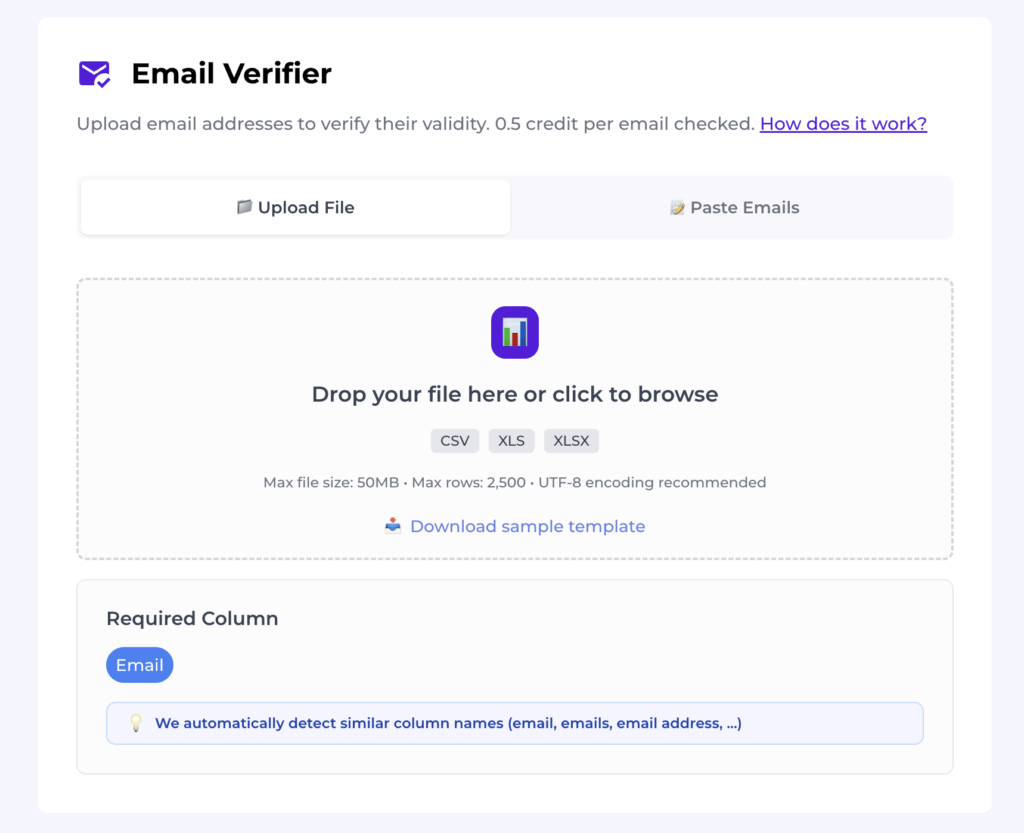
You’ll get back a file with “safe” vs. “riskier” annotations based on bounce likelihood.
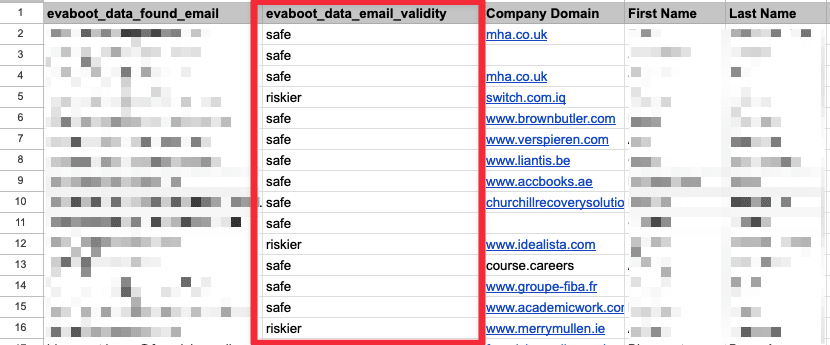
Here’s a video tutorial if you prefer to watch how it works:
And if you don’t already have an email list to verify, you can use Evaboot to scrape your lead data from LinkedIn Sales Navigator.
It’s the perfect solution if you want to create lead lists from your LinkedIn network and enrich them with real-time verified emails.
It provides you with ready-for-outreach Excel files in just one click.
Here’s how it works:
1. Click the extension button on the top right of your Sales Navigator page.

2. It’ll redirect to the Evaboot dashboard, where you can launch the export.

Once the export is done, you can download the email lists with all the other lead information needed to personalize your outreach messages.
To better understand how it works, you can also watch this video showing the full process of exporting Sales Navigator leads to Excel:
With Evaboot, you don’t have to worry about the quality and legality of the data.
You’ll have GDPR-compliant and verified emails ready to exploit in your next outreach campaign.

Evaboot’s pricing is credit-based.
The most basic plan starts at $9 for 100 credits.
NeverBounce is a reliable email verification service widely used by marketers, sales teams, and businesses of all sizes to maintain clean, high-quality email lists.
It excels at bulk email verification, ensuring large databases are free from invalid and risky addresses.
By integrating easily with popular CRMs, ESPs, and marketing tools (like HubSpot, Mailchimp, and Salesforce), NeverBounce helps you validate leads and improve deliverability rates without manual effort.
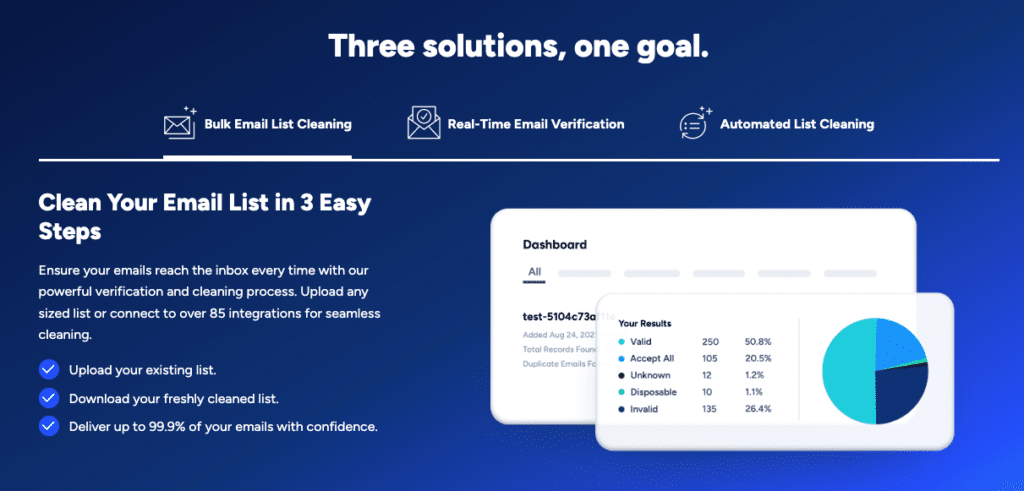
Its main features include:
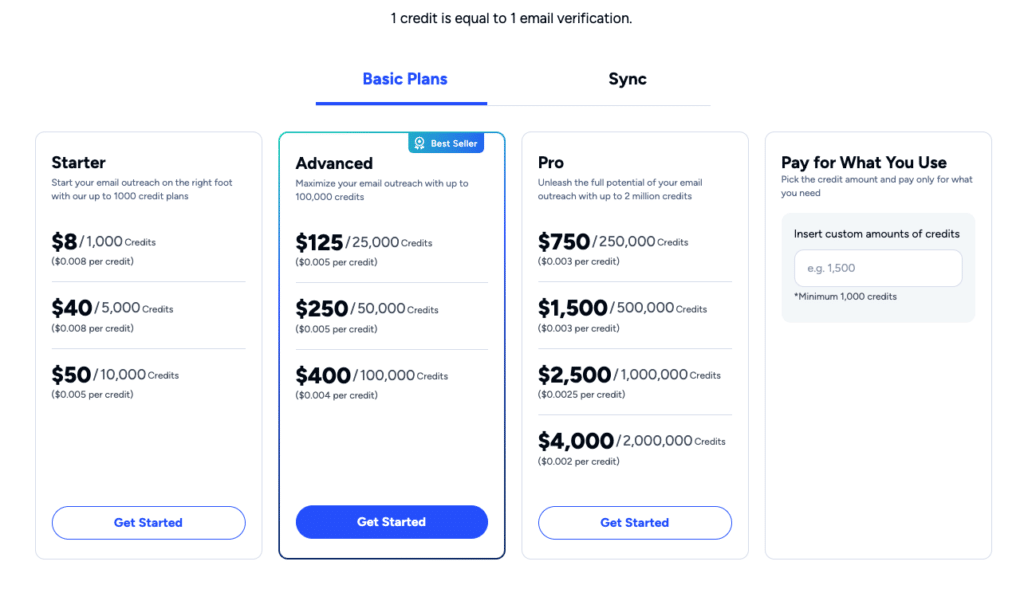
NeverBounce’s pricing is credit-based, meaning you only pay for the number of email validations you need.
They also offer monthly and annual subscription packages suitable for businesses sending large volumes of emails.
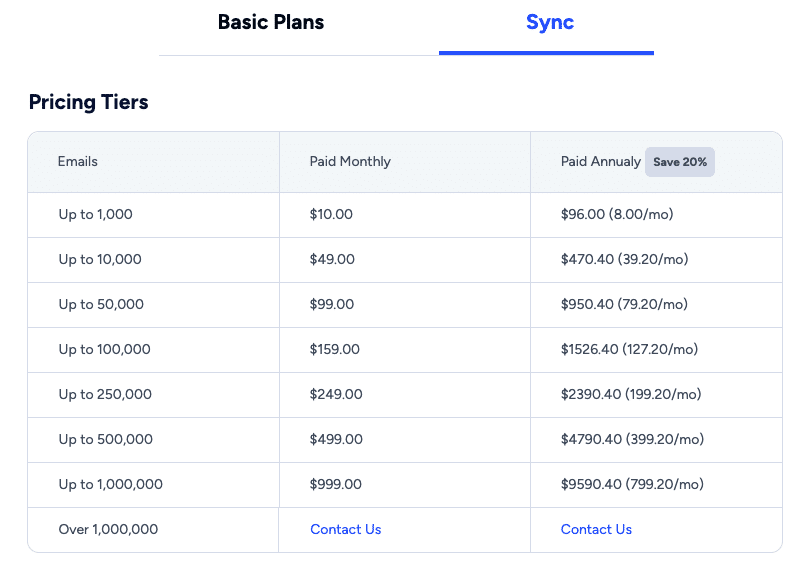
Upon registration, every user of NeverBounce receives 10 credits for free. These credits can be used across the Clean and Verify features, as well as through the API. If you plan on using those credits for the API, you can integrate NeverBounce into your workflow and see how it performs before committing to a paid plan.
With a transparent cost structure and free test credits, NeverBounce caters to businesses looking for an affordable way to enhance their email deliverability.
ZeroBounce is an easy-to-use email verification tool with a user-friendly interface and high accuracy.

It’s a great starting point for those new to email verification.
The tool checks for invalid addresses, spam traps, and syntax errors to ensure your email list is clean and deliverable.

ZeroBounce provides email validation and an email finder API, which is available in 13 languages, including PHP, iOS, Scala, Javascript, and more.
Installing the verification API on your preferred system, platform, and website will allow you to validate emails automatically using your software or application.
Their pricing is built for businesses of all sizes.
They offer a free trial, and their prices are credit-based, with a price per credit of $0.009.

Hunter.io is a leading email search engine specializing in discovering and verifying professional email addresses across the web.
Hunter finds and verifies emails via any company domain, company name, prospect name, Bulk email finder, API, Google Sheets Add-on, or Hunter plugin.


Hunter’s main features are:

You can try Hunter.io for free, which offers 25 searches and 50 verifications per month. The Starter Plan starts at €49/month, including 50

Emailable is a high-speed email verification tool designed to help you quickly validate addresses, reduce bounces, and safeguard your sender reputation.
By catching invalid, disposable, and risky email domains before you hit “send”, Emailable helps ensure your campaigns reach the right audience.
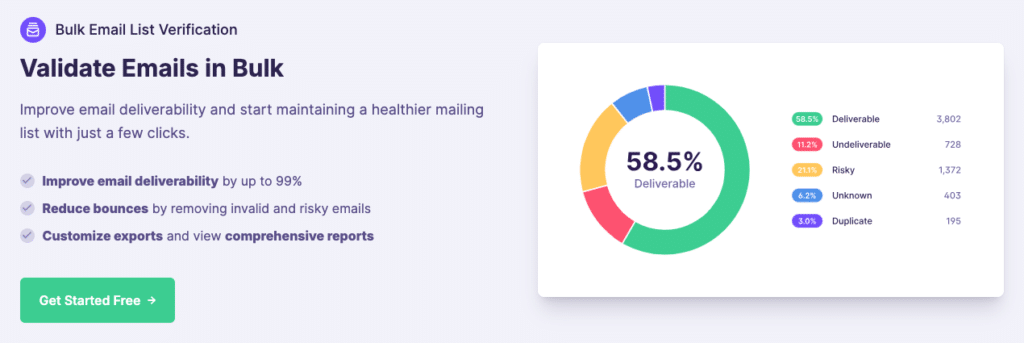
Its main features include:
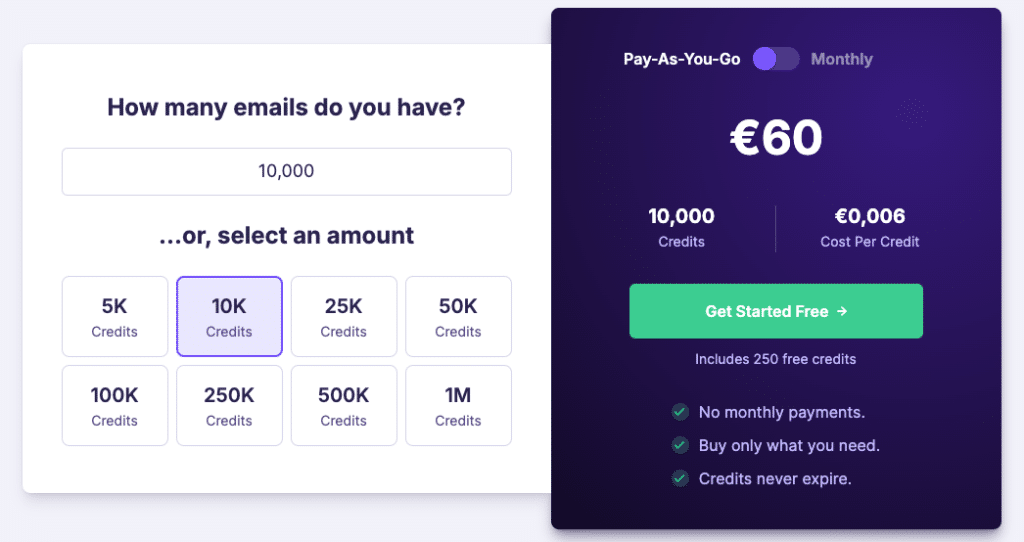
Emailable is quite budget-friendly. It uses a credit system where 1 credit = 1 email verification.
They offer 250 free email verification credits to new users. After that, pricing is volume-based: for instance, you might pay around $60 for 10,000 verifications (prices scale down with larger packages).
Monthly subscriptions are available for ongoing needs, or you can pay-as-you-go with credits that never expire.
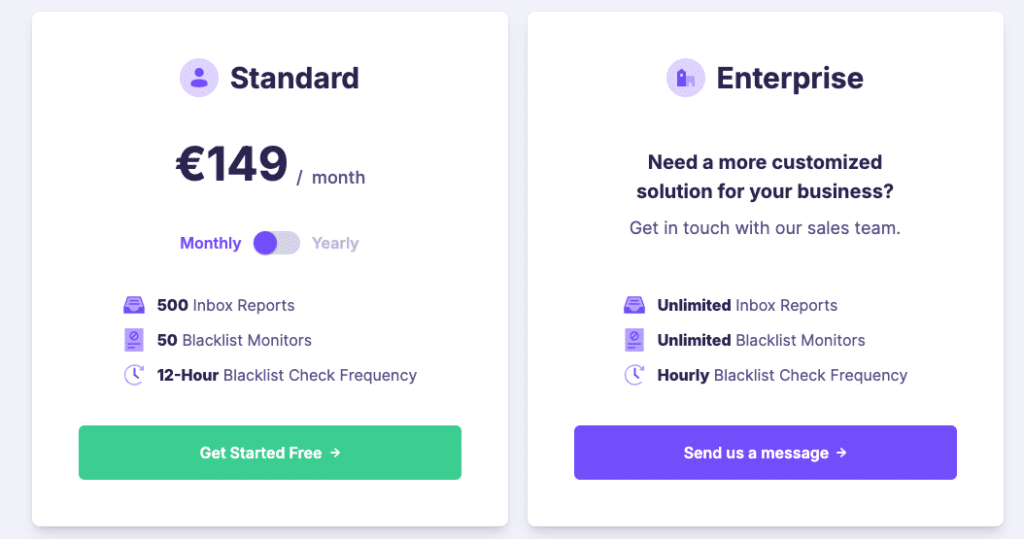
This flexible structure makes Emailable suitable for small businesses, large enterprises, and everything in between.
UseBouncer (often just called “Bouncer”) is an email verification platform with a strong focus on simplicity, accuracy, and quick turnaround times.
Ideal for businesses of all sizes, UseBouncer ensures that email contacts are active and safe to reach, helping you maintain a clean list and protect your sender reputation.
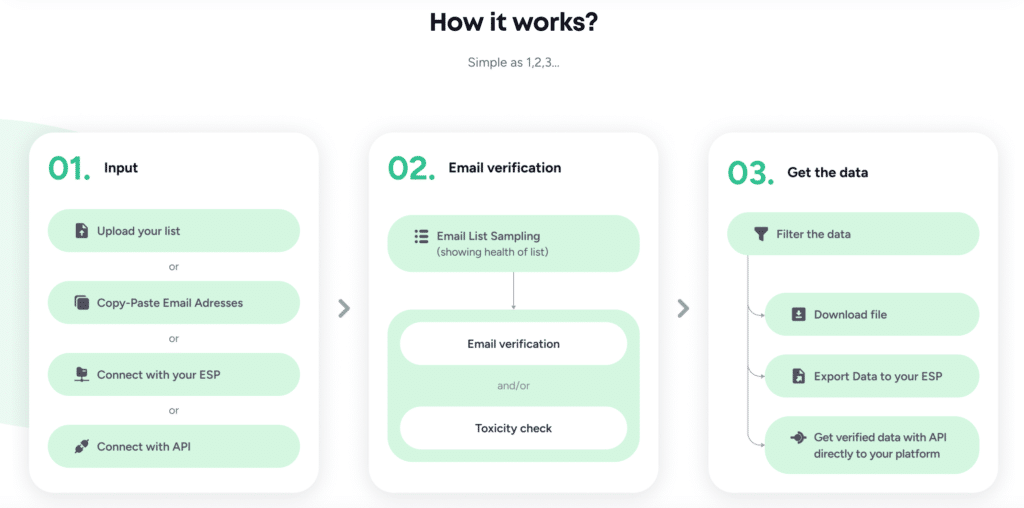
Its main features include:
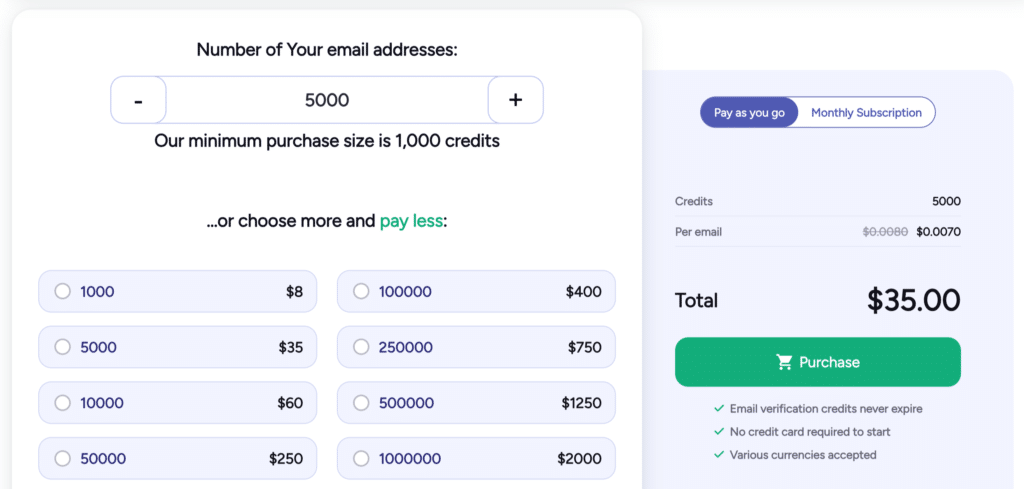
Pricing is typically credit-based, giving you flexibility to pay for only the number of verifications you need.
UseBouncer also offers monthly subscription plans for regular verifiers, along with a free trial so you can test the tool’s accuracy and ease of use.
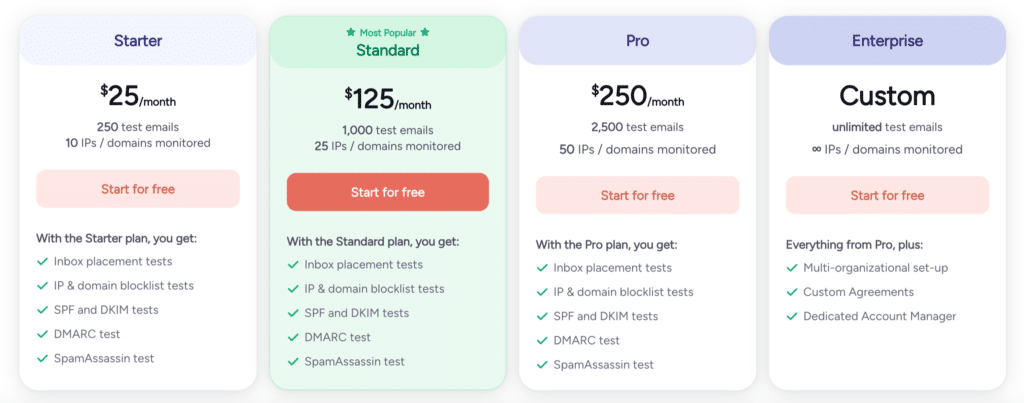
With a clear, intuitive interface and solid customer support, UseBouncer stands out as a straightforward solution for businesses looking to keep their email lists fresh, accurate, and ready to convert.
Lemlist is a sophisticated sales engagement platform designed to help you identify, engage, and convert your ideal customers across multiple channels.
It includes customized email campaigns, AI-driven campaign creation, multichannel outreach, and an integrated email finder and verifier.
With Lemlist, you can easily collect and automatically validate all of your leads’ contact information, eliminating the need for third-party tools and minimizing the risk of spam.
Lemlist offers:

ZoomInfo is a go-to B2B database and intelligence platform, that provides up-to-date information on decision-makers, companies, and market trends.
ZoomInfo is primarily used for sales, marketing, and talent acquisition.
All the emails and other contact and company information in their database through the data collection systems, ensuring that every business data is accurate, actionable, and compliant with privacy regulations.
Moreover, they have a Google Chrome Extension that instantly scrapes phone numbers, email addresses, and key buying signals from LinkedIn and other websites.

ZoomInfo collects data from trusted sources using advanced automation and validation to ensure accuracy.
It uses tools like NeverBounce, Chorus, or FormComplete feature to enrich and verify all the data that enters the platform.

It’s even more scalable with LinkedIn Sales Navigator.
However, using ZoomInfo only as an email lookup tool makes no sense: it’s expensive, and other tools can help you with single email verification.
It’s an expensive lead generation and research system suitable for big companies and enterprises.

You need to schedule a demo call to get a 48-hour free trial or get ZoomInfo Lite (Community Edition).
Their plans start with ZoomInfo Copilot Pro for $14,995/year.
Email verification tools confirm whether an email address is valid and active without sending an actual message to the inbox.
They run a series of automated checks to ensure each address is authentic and belongs to an active mailbox.
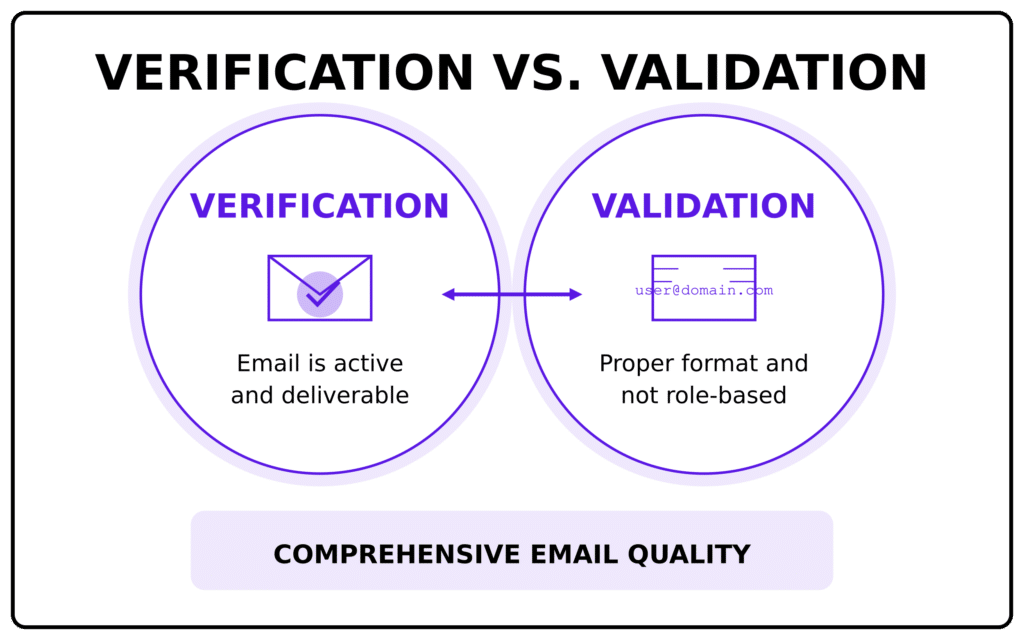
When a tool combines both verification and validation, you gain a more comprehensive look at the deliverability and legitimacy of each address in your database.
Sending emails to invalid addresses can lead to high bounce rates and low engagement.
Worse, repeatedly hitting undeliverable emails may trigger spam traps or blacklisting, damaging your sender reputation.
Internet Service Providers (ISPs) track the percentage of invalid emails you send; if it’s too high, they’ll likely funnel your next campaigns straight to the spam folder, or block them entirely.
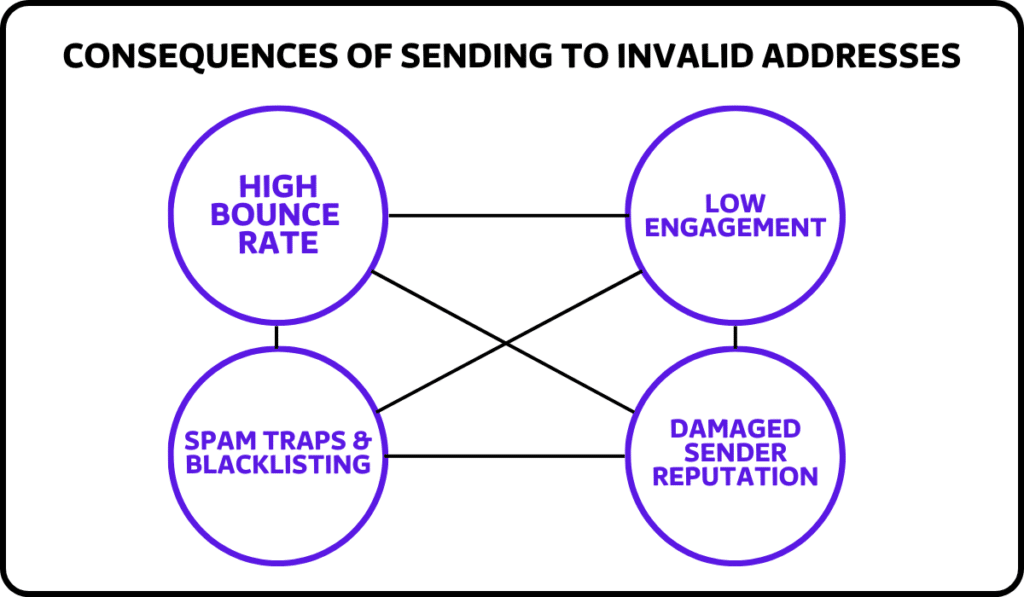
Implications of a poor sender reputation:
Using email verification tools boosts campaign performance in multiple ways:

When used consistently, email verification tools streamline your campaign performance by ensuring that every address on your list is valid, engaged, and worth your marketing efforts.
From accuracy to security, here are core functionalities that define the best email verification tools:
An email verifier is only as good as its accuracy. Look for tools that can identify:

Accurate verification directly impacts email deliverability, helping you land in the inbox instead of the spam folder.
Real-time verification is essential for forms, sign-ups, and any immediate outreach campaign.
With speed comes the ability to quickly check addresses on-the-fly and prevent invalid addresses from entering your CRM at all.

Some services can process hundreds of thousands of emails in an hour, while others might take much longer. Modern tools often leverage parallel processing and cloud infrastructure to verify in bulk quickly.
Check if a provider mentions processing speed or has options for different speed levels.
Most use cases involve cleaning an entire email list (or several lists) of contacts – this is bulk verification.
A good tool should make it easy to upload your list (commonly via CSV or Excel file, or by syncing from an ESP/CRM) and should handle large volumes without hiccups.
Look for features like:
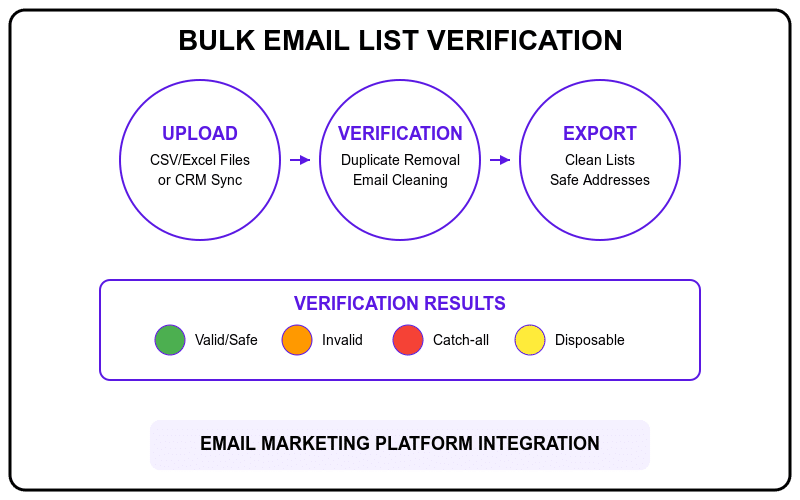
After bulk verification, the service should provide clear results for each contact – typically marking each email as “Valid/Safe to send”, “Invalid/Undeliverable”, “Catch-all/Risky”, “Disposable”, etc.
The tool might also offer to export a cleaned list (containing only the safe addresses) that you can import back into your email marketing platform.
Seamless integrations can save you a ton of time and make verification part of your regular workflow.

The best email verification tools integrate with popular Email Service Providers (ESPs) like Mailchimp, SendinBlue, Constant Contact, etc., allowing you to import and export lists directly.
They also often integrate with CRMs (e.g., HubSpot, Salesforce, Pipedrive) so you can verify leads or contacts within your CRM system.
Apart from direct integrations, almost all top verifiers support Zapier, which means you can connect them to thousands of apps and create automated workflows.
Having a robust email verification API lets developers integrate verification steps into larger applications, websites, and workflows.
When looking at an API, consider things such as: documentation and libraries, real-time checks, bulk API, status codes and info, rate limits and security.
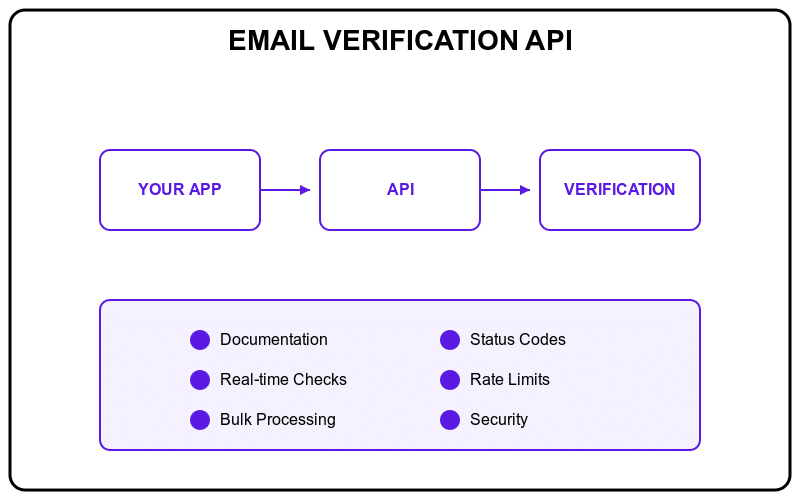
This is particularly helpful for businesses needing large-scale or automated verification solutions, such as e-commerce sites validating new user sign-ups.
Look for vendors that ensure GDPR compliance, encryption in data transfers, and other authentication protocols that protect your data.

Handling personal information requires a serious commitment to privacy and compliance, especially when dealing with cross-border outreach.
Last but certainly not least: pricing. Email verification services typically charge based on volume, and pricing models can be pay-as-you-go (buy a bundle of credits) or subscription-based (monthly quotas).
Consider the size of your email lists and how often you’ll verify (one-time cleanse vs. continuous use) when evaluating cost.

For example, if you have 10,000 contacts: a service charging $50 per 10k vs $70 per 10k will make a difference.
But balance cost with quality – it’s often worth paying a bit more for a tool that is more accurate or reliable, as the cost of sending to bad emails can be much higher.
Though each provider’s method may vary slightly, the standard procedure typically includes:
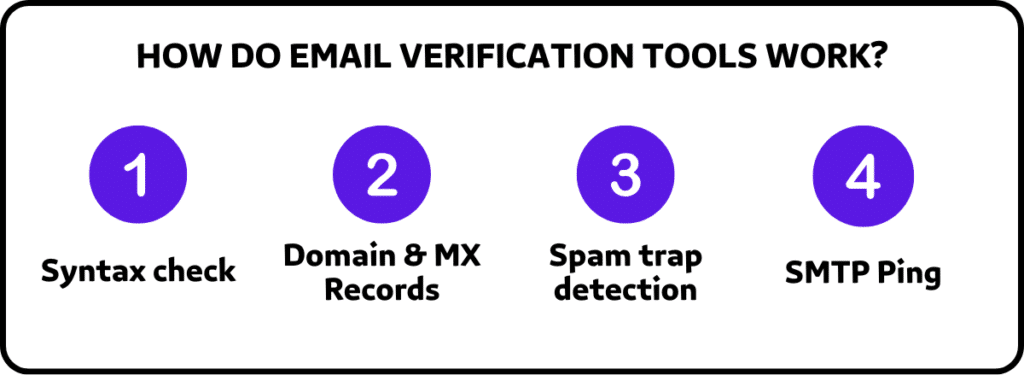
Whether you’re a startup looking to grow your audience or an established company managing enormous outreach campaigns, email verification tools are essential.
They maintain the integrity of your marketing efforts, protect your brand’s reputation, and foster meaningful engagement with real prospects.
The options above represent some of the best email verification tools on the market today. Evaluate them based on your specific workflow, volume needs, and budget constraints.
Real-time email verification checks the validity of an address the moment it’s entered into a form or database. It usually involves a quick SMTP ping, syntax check, and domain check before letting the email pass through.
You can use any email verifier tool – simply paste the address into a single-check interface or integrate an email verification API to automatically check addresses in real-time. This verification process doesn’t require sending a test email, sparing you from potential spam complaints.
Different platforms offer free credits to get you started, but the best choice depends on your business size, needed features, and volume. Many of the best email verification tools on our list have free trials, so experimenting is a good way to find your perfect match.
They reduce bounce rates, protect your sender reputation, and help keep your emails out of the spam folder. Verified lists also ensure you’re focusing your efforts on actual prospects, improving conversions, opens, and clicks.
Yes. Most email verification tools allow you to upload a CSV file for bulk email verification and cleaning. They then flag invalid, disposable, or high-risk addresses, which you can remove to ensure a healthier list.